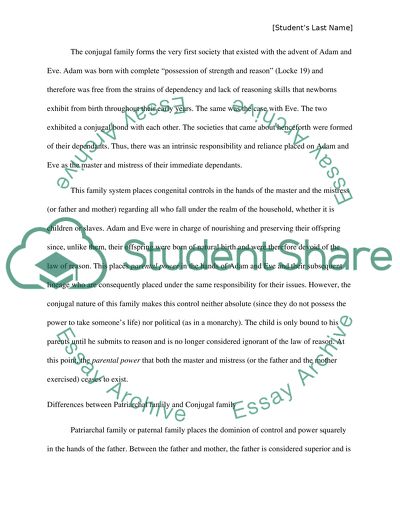Analysis of John Locke's Second Treatise: Ch V and VII Essay. Retrieved from https://studentshare.org/history/1439002-explain-all-the-characteristics-of-this-new-family
Analysis of John Locke'S Second Treatise: Ch V and VII Essay. https://studentshare.org/history/1439002-explain-all-the-characteristics-of-this-new-family.


